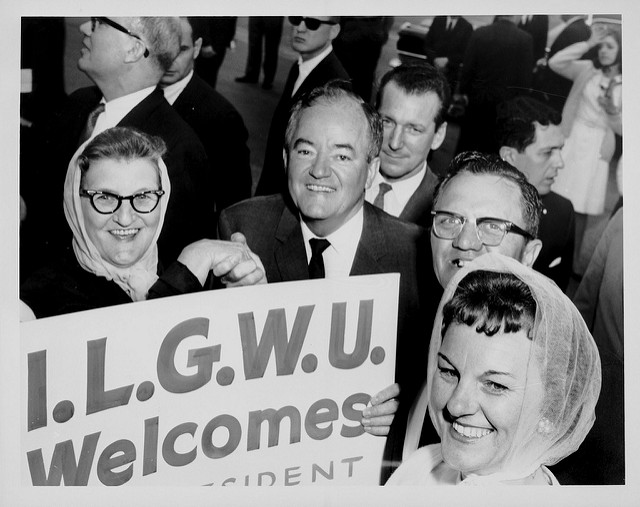Congress passed the Communist Control Act of 1954 (CCA) as an amendment to the McCarran Internal Security Act of 1950 “to outlaw the Communist Party, to prohibit members of Communist organizations from serving in certain representative capacities, and for other purposes.”
Communist Control Act banned Communist Party of the United States
Whereas the Internal Security Act mandated that communist organizations register with the attorney general of the United States, the CCA banned outright the Communist Party of the United States to prevent communists from holding office in labor organizations.
The CCA was the brainchild of U.S. Sen. Hubert Humphrey, D-Minn., who reportedly had tired of being labeled “soft toward communism” (Ybarra 2004: 743).
Following an investigation by the Subversive Activities Control Board (SACB) into the methods and goals of communist leadership in American labor organizations, Congress through the CCA designated a class of “Communist-infiltrated organizations.”
CCA gave ‘infiltrated’ labor unions a way to retain rights
Labor organizations determined to be communist-infiltrated by the SACB could reorganize and retain contractual rights gained through bargaining if 20 percent of the rank-and-file membership petitioned the National Labor Relations Board. In this regard, the CCA served as a means to protect rank-and-file union members from “Communist dictators who [were] using the unions and union funds to serve the ends of the Communist powers” (Tompkins 1955: 1397).
Although historically viewed as the moment liberal Democrats acquiesced to Red Scare politics, the CCA circumvented a proposed amendment to the Internal Security Act of 1950 that sought to declare unions “communist dominated” and strip them of all legal rights. Instead of declaring labor unions illegal, which would have deprived American laborers of their contractual protections, the CCA declared the Communist Party illegal.
Outlawing communists violated numerous constitutional rights
The means by which the CCA sought to provide protection to American laborers impinged upon a number of constitutional rights.
In outlawing the Communist Party, the CCA denied the party the right to have bank accounts, enter into leases, obtain judicial enforcement of contracts, sue or be sued in courts, appeal adverse court rulings, conduct business activity, or appear on any ballot (Haerle 1955). Congress repealed most provisions of the act, which has rarely been enforced.
This article was originally published in 2009 while Kane M. Click was at University of Nebraska-Lincoln.

